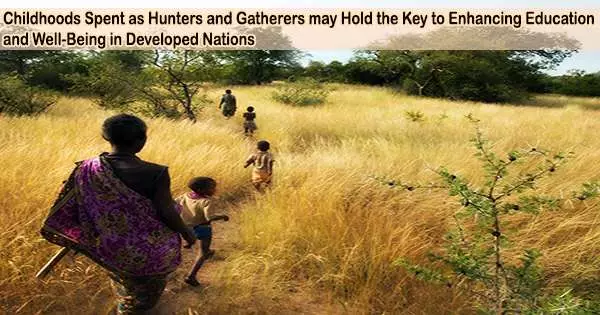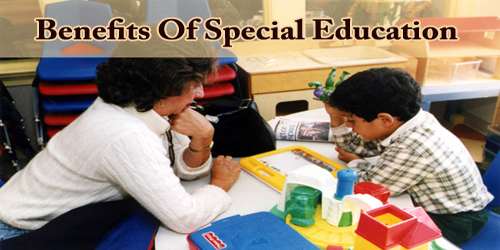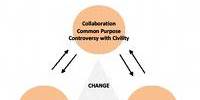As hunter-gatherers for 95% of our evolutionary history, we may learn from them about the circumstances to which children may have psychological adaptations. Additionally, paying more attention to childhoods in economically developed nations may boost those nations’ education and wellness.
Published today in the Journal of Child Psychology and Psychiatry, a new study by Dr. Nikhil Chaudhary, an evolutionary anthropologist at the University of Cambridge, and Dr. Annie Swanepoel, a child psychiatrist, calls for new research into child mental health in hunter-gatherer societies. They investigate the notion that some features of hunter-gatherer childhoods might be beneficial for families living in economically advanced nations.
In the future, ‘experimental intervention trials’ in households, schools, and nurseries might be based on hunter-gatherer practices.
The authors admit that kids growing up in hunter-gatherer tribes experience significantly different conditions and surroundings than kids growing up in affluent nations. Additionally, they emphasize that hunter-gatherer children frequently encounter challenges that are absent in affluent nations and warn against idealizing their childhoods.
Drawing on his own observations of the BaYaka people in Congo and the extensive research of anthropologists studying other hunter-gatherer societies, Dr. Chaudhary highlights major differences in the ways in which hunter-gatherer children are cared for compared to their peers in developed countries.
He stresses that “contemporary hunter-gatherers must not be thought of as ‘living fossils,’ and while their ways of life may offer some clues about our prehistory, they are still very much modern populations each with a unique cultural and demographic history.”
Physical contact and attentiveness
Even while baby carriers and baby massage are becoming more popular in affluent nations, hunter-gatherer communities continue to have much greater rates of physical contact with infants.
In Botswana, for instance, 10-20 week old! Kung infants are in physical contact with someone for around 90% of daylight hours, and almost 100% of crying bouts are responded to, almost always with comforting or nursing scolding is extremely rare.
The study emphasizes that non-parental caregivers, or ‘alloparents,’ who are much more uncommon in developed countries, play a vital role in providing extraordinarily attentive childcare.
Almost all day, hunter-gatherer infants and toddlers have a capable caregiver within a couple of metres of them. From the infant’s perspective, that proximity and responsiveness, is very different from what is experienced in many nursery settings in the UK. If that ratio is stretched even thinner, we need to consider the possibility that this could have impacts on children’s wellbeing.
Dr. Nikhil Chaudhary
Non-parental caregivers
In many hunter-gatherer societies, alloparents provide almost half of a child’s care. A previous study found that in the DRC, Efe infants have 14 alloparents a day by the time they are 18 weeks old, and are passed between caregivers eight times an hour.
Dr. Chaudhary said: “Parents now have much less childcare support from their familial and social networks than would likely have been the case during most of our evolutionary history. Such differences seem likely to create the kind of evolutionary mismatches that could be harmful to both caregivers and children.”
“The availability of other caregivers can reduce the negative impacts of stress within the nuclear family, and the risk of maternal depression, which has knock-on effects for child wellbeing and cognitive development.”
Contrary to ‘intense mothering’ narratives that emphasize that mothers should use their maternal instincts to manage childcare alone, the study emphasizes that alloparenting is a key human adaptation. Dr. Chaudhary and Dr. Swanepoel write that ‘such narratives can lead to maternal exhaustion and have dangerous consequences.’
Care-giving ratios
The study points out that communal living in hunter-gatherer societies results in a very high ratio of available caregivers to infants/toddlers, which can even exceed 10:1.
This stands in stark contrast to the nuclear family in affluent countries, and even more so to nursery settings. According to the UK’s Department of Education regulations, nurseries require ratios of 1 carer to 3 children aged under 2 years, or 1 carer to 4 children aged 2-3.
Dr. Chaudhary said: “Almost all day, hunter-gatherer infants and toddlers have a capable caregiver within a couple of metres of them. From the infant’s perspective, that proximity and responsiveness, is very different from what is experienced in many nursery settings in the UK.”
“If that ratio is stretched even thinner, we need to consider the possibility that this could have impacts on children’s wellbeing.”
Children providing care and mixed-age active learning
Children are much more involved in caring for infants and toddlers in hunter-gatherer tribes than they are in modern nations. It is typical to observe older, but still pre-adolescent, children caring for infants in some communities where they start providing some childcare at the age of four and are capable of sensitive caregiving.
By contrast, the NSPCC in the UK recommends that when leaving pre-adolescent children at home, babysitters should be in their late teens at least.
Dr. Chaudhary said: “In developed countries, children are busy with schooling and may have less opportunity to develop caregiving competence. However, we should at least explore the possibility that older siblings could play a greater role in supporting their parents, which might also enhance their own social development.”
The study also notes that children learn mostly through observation and imitation and that informative teaching is uncommon in hunter-gatherer tribes. From around the age of two, hunter-gatherer children spend large portions of the day in mixed-age (2-16) ‘playgroups’ without adult supervision. There, through very active play, practice, and exploration, they share knowledge and learn from one another.
Learning and play are two sides of the same coin, which contrasts with the lesson-time / play-time dichotomy of schooling in the UK and other developed countries.
Dr. Chaudhary and Dr. Swanepoel note that “Classroom schooling is often at odds with the modes of learning typical of human evolutionary history.”
The study acknowledges that children living in hunter-gather societies live in very different environments and circumstances than those in developed countries:
“Foraging skills are very different to those required to make a living in market-economies, and classroom teaching is certainly necessary to learn the latter. But children may possess certain psychological learning adaptations that can be practically harnessed in some aspects of their schooling. When peer and active learning can be incorporated, they have been shown to improve motivation and performance, and reduce stress.”
The authors also draw attention to research demonstrating how physical exercise therapies can improve academic achievement in students with ADHD.
The study urges further investigation into the mental health of youngsters living in hunter-gatherer tribes in order to confirm or deny the existence of the hypothesized evolutionary incompatibilities. If so, these revelations might subsequently be applied to guide experimental intervention trials in industrialized nations.
Dr. Chaudhary and Dr. Swanepoel, along with a group from the Royal College of Psychiatrists, are hoping that increased cooperation between evolutionary anthropologists and child psychiatrists/psychologists can expand our knowledge of the conditions necessary for children to thrive.
















